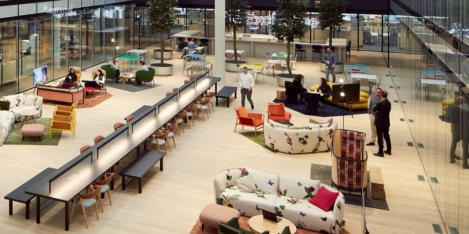April 1, 2019
Against metrics: how measuring performance by numbers backfires
 More and more companies, government agencies, educational institutions and philanthropic organisations are today in the grip of a new phenomenon. I’ve termed it ‘metric fixation’. The key components of metric fixation are the belief that it is possible – and desirable – to replace professional judgment (acquired through personal experience and talent) with numerical indicators of comparative performance based upon standardised data (metrics); and that the best way to motivate people within these organisations is by attaching rewards and penalties to their measured performance. (more…)
More and more companies, government agencies, educational institutions and philanthropic organisations are today in the grip of a new phenomenon. I’ve termed it ‘metric fixation’. The key components of metric fixation are the belief that it is possible – and desirable – to replace professional judgment (acquired through personal experience and talent) with numerical indicators of comparative performance based upon standardised data (metrics); and that the best way to motivate people within these organisations is by attaching rewards and penalties to their measured performance. (more…)








 New service charge rules which aim to ensure there are no hidden costs and clarity around disputes, come in to force today (1 April 2019) and are mandatory for RICS professionals. ‘Service charges in commercial property’ has been developed with industry leaders, including major property organisations and professional bodies to secure transparent, upfront and fair costs for businesses as part of the maintenance and upkeep of their building. Amongst the rules, any charges incurred by the tenant must be explained fully at the outset and in accordance with the terms of the occupational lease, whilst any upkeep costs not specifically mentioned or explained in a lease must be made irrecoverable from the tenant.
New service charge rules which aim to ensure there are no hidden costs and clarity around disputes, come in to force today (1 April 2019) and are mandatory for RICS professionals. ‘Service charges in commercial property’ has been developed with industry leaders, including major property organisations and professional bodies to secure transparent, upfront and fair costs for businesses as part of the maintenance and upkeep of their building. Amongst the rules, any charges incurred by the tenant must be explained fully at the outset and in accordance with the terms of the occupational lease, whilst any upkeep costs not specifically mentioned or explained in a lease must be made irrecoverable from the tenant.


























April 2, 2019
A quarter of a century ago, the newborn Internet set office design on a different path
by Colin Watson • Comment, Furniture, Workplace design
(more…)